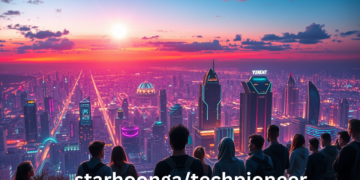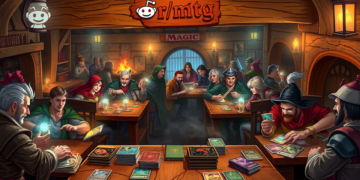
The Shift Towards Online Entertainment
It seems almost obvious at this point that the way people spend leisure time has rapidly transformed. With just a smartphone and internet connection, movies, games, and endless streaming options are right there. That sudden convenience is part of why online platforms are getting so much attention these days. For instance, while stumbling across digital platforms that merge gaming and interactive experiences, I found sites like https://aviator-game-app.in/app/, which reflect just how creative and adaptive this whole industry has become. Where once entertainment meant waiting for scheduled shows or sticking to limited options, today it means being able to bounce between activities whenever curiosity strikes.
Of course, this shift did not happen overnight. The push toward digital forms of fun picked up during extraordinary global events when staying at home became a norm. A few years ago, you might have found people hesitant to spend so much time looking at screens. Now, those doubts seem to have melted into habit. The very boundaries of entertainment, what counts as leisure, are stretched out wide.
The Role of Technology
Everything comes back to technology. Better internet speeds, smarter devices, and expanding global networks opened the gates. I sometimes look at how my phone suggests shows or points me at music playlists and wonder how it all became so seamless. What used to feel like an effort, searching through local shops for DVDs or game cartridges, has turned into a single tap. That small change is no small thing.
Interestingly, online entertainment is not just about streaming. The gaming industry, interactive learning platforms, even fitness apps that gamify workouts fall into this larger movement. The more clever these services get, the harder it is to resist them. Some people say the algorithms know us better than we know ourselves and, while that might sound strange, there is some truth there. The personalization can feel uncanny, even comforting at times.
A New Way of Social Connection
There is another layer here that might not be as obvious, and that is community. Entertainment used to be solitary at times, but now it is riddled with interaction. People are chatting in live streams, talking endlessly in forums, or playing games with groups scattered across the globe. It is extraordinary to think that friendships, or at least social bonds, are maintained in shared digital spaces. A decade ago, perhaps that would have sounded too artificial. But today, it feels natural.
It is not only young audiences, by the way. Adults who used to be skeptical are embracing video calls, streaming watch parties, even multiplayer games. It is not quite the same as face-to-face, but it is close enough to keep someone connected when physical meetings are not possible. And, occasionally, it is easier. Not everyone has the time or energy to meet outside, yet with a click, they join in.
The Importance of Variety and Demand
Something else people might underestimate is variety. Online entertainment offers more than could ever fit into a local library or store. For someone interested in niche comedy or Japanese anime, the fact that they can find it instantly is nothing short of a gift. The demand for something new is constant, and fortunately, these platforms thrive on producing or recommending just that. When I say new, I don’t necessarily mean new releases. Sometimes the value comes from revisiting old movies, forgotten songs, or indie games that never made it to mainstream shelves.
- Streaming services with endless catalogs
- On-demand gaming experiences
- Music platforms tailored to taste
- Interactive fitness and education apps
This abundance places power in the hands of the viewer or player, which is different from the past. They decide not just what, but when and how. And that control is addictive in its own right. People dislike waiting, and online entertainment reduces waiting to nearly nothing.
Looking Ahead: Future Trends
It might be too early to say where this will all land, but the trajectory suggests growth, not decline. Technologies like virtual reality and augmented reality, which still feel a little experimental now, could play more central roles soon. Imagine exploring whole worlds just by putting on lightweight glasses, with others beside you doing the same from across the world. It sounds futuristic, yet it is already technically possible. Will it work flawlessly? Maybe not for a while, but the direction is clear enough.
What interests me most is how people will adapt, because changes in entertainment often ripple out into broader culture. We start to spend time differently, value different experiences, and even change our habits of communication. That feedback loop between technology and lifestyle ensures online entertainment will not just be an option, but perhaps the default way we unwind. If anything, the momentum feels unstoppable now.

The Shift Towards Online Entertainment
It seems almost obvious at this point that the way people spend leisure time has rapidly transformed. With just a smartphone and internet connection, movies, games, and endless streaming options are right there. That sudden convenience is part of why online platforms are getting so much attention these days. For instance, while stumbling across digital platforms that merge gaming and interactive experiences, I found sites like https://aviator-game-app.in/app/, which reflect just how creative and adaptive this whole industry has become. Where once entertainment meant waiting for scheduled shows or sticking to limited options, today it means being able to bounce between activities whenever curiosity strikes.
Of course, this shift did not happen overnight. The push toward digital forms of fun picked up during extraordinary global events when staying at home became a norm. A few years ago, you might have found people hesitant to spend so much time looking at screens. Now, those doubts seem to have melted into habit. The very boundaries of entertainment, what counts as leisure, are stretched out wide.
The Role of Technology
Everything comes back to technology. Better internet speeds, smarter devices, and expanding global networks opened the gates. I sometimes look at how my phone suggests shows or points me at music playlists and wonder how it all became so seamless. What used to feel like an effort, searching through local shops for DVDs or game cartridges, has turned into a single tap. That small change is no small thing.
Interestingly, online entertainment is not just about streaming. The gaming industry, interactive learning platforms, even fitness apps that gamify workouts fall into this larger movement. The more clever these services get, the harder it is to resist them. Some people say the algorithms know us better than we know ourselves and, while that might sound strange, there is some truth there. The personalization can feel uncanny, even comforting at times.
A New Way of Social Connection
There is another layer here that might not be as obvious, and that is community. Entertainment used to be solitary at times, but now it is riddled with interaction. People are chatting in live streams, talking endlessly in forums, or playing games with groups scattered across the globe. It is extraordinary to think that friendships, or at least social bonds, are maintained in shared digital spaces. A decade ago, perhaps that would have sounded too artificial. But today, it feels natural.
It is not only young audiences, by the way. Adults who used to be skeptical are embracing video calls, streaming watch parties, even multiplayer games. It is not quite the same as face-to-face, but it is close enough to keep someone connected when physical meetings are not possible. And, occasionally, it is easier. Not everyone has the time or energy to meet outside, yet with a click, they join in.
The Importance of Variety and Demand
Something else people might underestimate is variety. Online entertainment offers more than could ever fit into a local library or store. For someone interested in niche comedy or Japanese anime, the fact that they can find it instantly is nothing short of a gift. The demand for something new is constant, and fortunately, these platforms thrive on producing or recommending just that. When I say new, I don’t necessarily mean new releases. Sometimes the value comes from revisiting old movies, forgotten songs, or indie games that never made it to mainstream shelves.
- Streaming services with endless catalogs
- On-demand gaming experiences
- Music platforms tailored to taste
- Interactive fitness and education apps
This abundance places power in the hands of the viewer or player, which is different from the past. They decide not just what, but when and how. And that control is addictive in its own right. People dislike waiting, and online entertainment reduces waiting to nearly nothing.
Looking Ahead: Future Trends
It might be too early to say where this will all land, but the trajectory suggests growth, not decline. Technologies like virtual reality and augmented reality, which still feel a little experimental now, could play more central roles soon. Imagine exploring whole worlds just by putting on lightweight glasses, with others beside you doing the same from across the world. It sounds futuristic, yet it is already technically possible. Will it work flawlessly? Maybe not for a while, but the direction is clear enough.
What interests me most is how people will adapt, because changes in entertainment often ripple out into broader culture. We start to spend time differently, value different experiences, and even change our habits of communication. That feedback loop between technology and lifestyle ensures online entertainment will not just be an option, but perhaps the default way we unwind. If anything, the momentum feels unstoppable now.
























